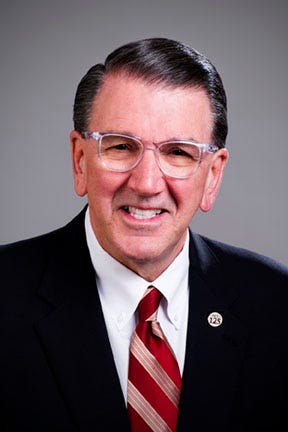Thoughts from a Principled Conservative Outpost – The ninth in a series on aspects of conservatism in the Panhandle. Some of what follows is later commentary found at the Hill Institute.
called Joseph A. Hill points to what is called a “performance culture” within the university which encourages people to constantly learn and grow. Its performance culture included leadership, faculty and student achievement, and the achievement of actionable results for the betterment of society. Achievement and merit should be the highest standards of achievement. Universities can and should play a fundamental role in understanding the human condition, individually, and its implications for social responsibility, free from the burden of identity other than the individual spirit and the accomplishments that accompany it.
Students and their families have begun to expect from universities a clear picture of the value proposition of higher education. Recently, Patrick Methvin of the Bill & Melinda Gates Foundation reflected on polling data from a study by Edge Research in Memoirs of Postsecondary Success that reveals a deep interest and appreciation for understanding the value of earning a degree. The performance indicators he identified are the costs and time needed to complete various degree programmes, the opportunities for increased academic success for all students and digitally available coursework that would reduce costs and turnaround time per degree and enhance outcomes. President Hill's concepts regarding performance were more general but focused on measurable results, high standards, and social and personal responsibility. But to achieve these lofty goals, performance indicators like those identified in the Edge Research study require more detailed, fact-based data.

Conservatism follows the prevailing culture of an organization that has a clearly defined set of shared values and expectations that support the goal of high performance. This culture focuses on results, accountability and excellence. Gallup claims that things like high expectations, goal alignment, feedback, recognition, accountability, continuous improvement, merit-based rewards, and open communication all lead to a culture of performance. People should not be rewarded just for participating or attending. It has been said that some degrees are merely certificates of attendance. This will not lead to establishing a culture of performance. Rewards based on anything other than merit confuse the relationship between equality, where everyone gets the same opportunity, and equality, where certain outcomes result from mere participation or membership.
Principled conservatism typically champions the value of consistency and stability in the university environment. The same can also be true in many settings where output is measurable and defined by the value produced. In such environments, risk management is essential. Behavior that allows people to take informed risks should be encouraged. According to McKinsey, performance cultures that emphasize results, accountability and excellence are places that tolerate risk. Within these cultures, the alignment of institutional goals, innovation, and tradition are mutually supportive rather than mutually exclusive. The power of leadership lies in inspiring and motivating people towards high performance through a shared vision. Such cultures can be evaluated through empirical evidence.
Universities should be driven by cultures of performance, rather than overwhelmed by sustainability ideologies. Ideas and performance must prevail. Intercollegiate athletics are guided by a culture of performance. A 4-second 40-yard dash gets more attention from a football coach than a 4-second 90-yard dash. Why? Because the 40-yard dash represents the skill required. Likewise, without apology, a 1500 on the SAT will get a longer look from the scholarship office than a 1100 on the same test. These types of measures, although they may be imperfect, are essential—albeit imperfect—components of potential performance. Focus, compassion, understanding and wisdom allow the performer to rule. In universities, faculty performance cultures depend on quality teaching, academic research, student performance to graduation, operational excellence, and success in a highly competitive environment of university rankings, funding, and talent—not elegant political metrics, according to Andrea Y. Simpson. In universities, health performance must be defined in a way that is specific to the university's mission, as well as to the location in which the university is located. In this sense, a university is like any other business in which resources are invested and results are expected—a very important perspective in a place like the Texas Panhandle.
The lack of an established performance culture is a vague vision and ill-defined goals according to Forbes. The organizational community must embrace commitment to goals, otherwise disconnection and lack of motivation follow. Leadership plays a major role in shaping organizational culture. Leaders must inspire and motivate people toward a high-performance culture, without which cultures fail and organizations collapse. Communication is especially important in clarifying understanding, identifying opportunities, and aligning different parts of the organization. Even then, employees may disengage, performance management systems may fail, and people may resist change.
Principled conservatism leads to structures of responsibility, courage to take risks, strong communication, focus on individual performance and contributions, careful management of resources and appreciation for long-term commitments to organizational goals. President Hill hit the nail on the head. At West Texas A&M University, a commitment to continuous learning, growth, and achievement for every person associated with the organization and actionable results results in a better society. Achievement and merit help create a culture that values engaged citizenship.
Walter V. Wendler is president of West Texas A&M University. His weekly columns are available at https://walterwendler.com/.

